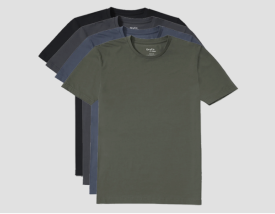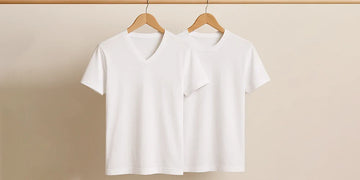Underarm odor can be a quiet confidence killer. It lingers, it clings, and it can feel impossible to fully shake. But that doesn’t mean you’re stuck with it. Managing body odor is more than a daily shower and some deodorant. It’s about understanding where that smell actually comes from and knowing which strategies can keep it under control.
Is a "Cure" for Underarm Odor Possible?
Some folks want to know: can you get rid of it for good? Kind of. You can absolutely minimize underarm odor to the point where it barely crosses your mind. But expecting your pits to be scentless forever isn't realistic unless you're going under the knife.
For most people, consistency is the secret weapon. Stay on top of hygiene. Use the right products. Mind your lifestyle. That combo keeps odor to a minimum.
Now, if you’re dealing with excessive sweating or odor that’s downright disruptive, medical options exist. Things like Botox, gland removal surgery, or nerve-targeting procedures can seriously dial it down. But those are heavy-duty solutions for more extreme cases. Sweating is still a basic human function. You need it to survive.
Why Underarms Smell in the First Place
Sweat doesn’t stink. The smell happens after. Your skin’s bacteria feed on sweat, breaking it down into smelly compounds. It’s biology doing its thing.
Two types of sweat glands are involved:
● Eccrine glands: Found almost everywhere, produce mostly water and salt. This sweat cools your body but usually doesn’t smell.
● Apocrine glands: Located in areas like your armpits and groin, these kick in during stress, hormones, or puberty. Their thicker secretion is what mixes with skin bacteria and leads to odor.
Things that can crank up that smell include hormones (hello, menopause and pregnancy), spicy or sulfur-heavy foods, certain meds, and even genetics. Some folks naturally have more active sweat glands or stronger-smelling sweat. It’s not a character flaw. It’s chemistry.
How to Handle Underarm Odor: 5 Stuff That Actually Works

There’s no single fix, but there are combos that work. Think layers of strategy, not one miracle cure. It’s less about finding the “perfect” product and more about creating a routine that fits your body, your habits, and your lifestyle.
1. Get Serious About Hygiene
Shower daily, more if you're working out or sweating heavily. Use antibacterial soap that actually kills the bacteria causing the odor. Products with benzoyl peroxide can help too.
Trim or remove underarm hair. Hair holds onto moisture and bacteria. Less hair means less odor.
Wash your clothes after sweating. And not just a quick rinse. Add baking soda if needed. Odor clings to fabric fibers.
2. Choose Products Wisely
Deodorants mask smell. Antiperspirants block sweat. Most people need both. Apply them to dry skin, ideally at night.
Clinical-strength versions work better for some. If OTC products aren’t cutting it, talk to your doctor. Prescription formulas exist.
Natural deodorants can be gentler if you have sensitive skin, but they don’t stop sweating. They reduce odor, not moisture.
3. Watch Your Diet
Certain foods make you smell worse. Garlic, onions, red meat, and some fish can linger on your skin for hours.
Hot sauce and caffeine? Not great either. They make you sweat more.
Drink water. Lots of it. Hydration helps dilute whatever your body is trying to get rid of.
4. Try Natural Remedies (if you’re into that)
Some people swear by baking soda, lemon juice, apple cider vinegar, witch hazel, or green tea. These might work by adjusting your skin’s pH or killing off odor-causing bacteria.
That said, be cautious. Natural doesn’t always mean gentle. Don’t apply acids to broken or irritated skin.
5. Dress Smarter
Loose, breathable clothing lets your skin air out. Cotton, bamboo, and moisture-wicking fabrics are your friends.
Tight synthetic shirts trap heat and moisture, making odor worse. They also tend to hang onto smells even after washing.
6. Still Stuck? Talk to a Doctor
If nothing’s working, and you’re still sweating buckets or feeling self-conscious about your scent, it’s time to call in backup.
Medical treatments include:
- Prescription antiperspirants
- Botox injections (yes, really)
- Nerve-blocking meds
- Iontophoresis (mild electric currents to stop sweat)
- Lasers or surgery to destroy sweat glands
These aren’t for everyone, but they exist for a reason. If your BO feels like more than just a nuisance, don’t tough it out. There are real options that work.
FAQs
What’s the difference between deodorant and antiperspirant?
Deodorant neutralizes or masks odor. Antiperspirant blocks sweat glands to reduce moisture. Most products combine both, but they tackle different parts of the problem.
Why do I still smell even after showering?
If bacteria aren’t completely removed, they’ll get right back to work once you start sweating again. You might need a stronger antibacterial soap or to wash clothes more thoroughly.
Can diet really affect how I smell?
Absolutely. Foods like garlic, onions, and red meat can alter your body odor noticeably. So can alcohol and certain fish.
Is it safe to use antiperspirants every day?
Yes. Unless you have a specific allergy or skin sensitivity, daily use is generally fine. Some people prefer natural alternatives, but the safety of antiperspirants is well-established.
What’s the deal with Botox for sweating?
Botox blocks the nerves that tell your sweat glands to activate. It’s temporary (lasting a few months) but can be life-changing for people with excessive sweating.
When should I worry that my body odor is a medical issue?
If the odor suddenly changes, becomes unusually strong, or is accompanied by other symptoms (like night sweats, fever, or unexplained weight loss), it’s worth talking to a doctor. It could be a sign of something more serious.
Bottom line
You’re not doomed to live in a cloud of your own funk. With the right approach, you can keep underarm odor at bay and go about your day without a second thought.
It takes some trial and error. What works for your coworker or favorite influencer might not work for you and that’s fine. Building your own stink-proof routine is about understanding your body, tracking what throws it off, and sticking with what helps. Some days will be easier than others. The key is having tools ready for both.
Stay curious. Stay dry. And remember: if you’re sweating, you’re alive. It just doesn’t have to be so smelly.








